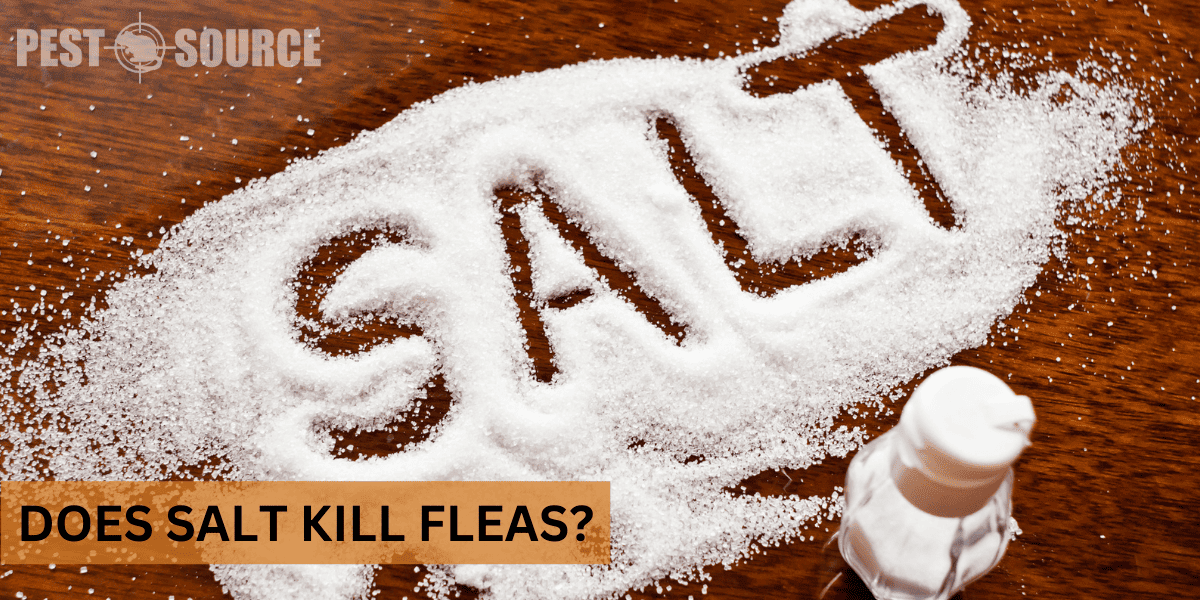Are you dealing with the dreaded presence of fleas in your home or on your beloved pets? You may have heard that salt can be an inexpensive and natural solution for controlling these pesky parasites. But does salt genuinely kill fleas, or is it just an old wives’ tale?
In this comprehensive guide, we will explore the relationship between salt and fleas, examining the science behind the theory, the types of salt that may be effective, its potential use across various settings, and how it compares to other flea control methods. By the end of this article, you’ll have a clearer understanding of whether salt is a reliable and safe solution for dealing with flea infestations.
POINTS
- Salt, specifically sodium chloride, may have the potential to kill fleas by causing dehydration; however, its overall effectiveness as a flea control agent remains uncertain.
- The effectiveness of salt against flea eggs and larvae is unclear, and it may not provide a comprehensive solution to infestations.
- Using salt directly on pets or in certain environments, such as carpets and furniture, can potentially cause irritation, damage, or other health concerns.
- Salt is not an effective treatment for outdoor flea infestations or tick control, and other solutions should be considered instead.
- To effectively manage flea infestations, it is recommended to use a comprehensive approach, combining any potential salt treatments with veterinarian-approved solutions and ongoing prevention measures.
The Link Between Salt and Fleas
What is the relationship between fleas and salt?
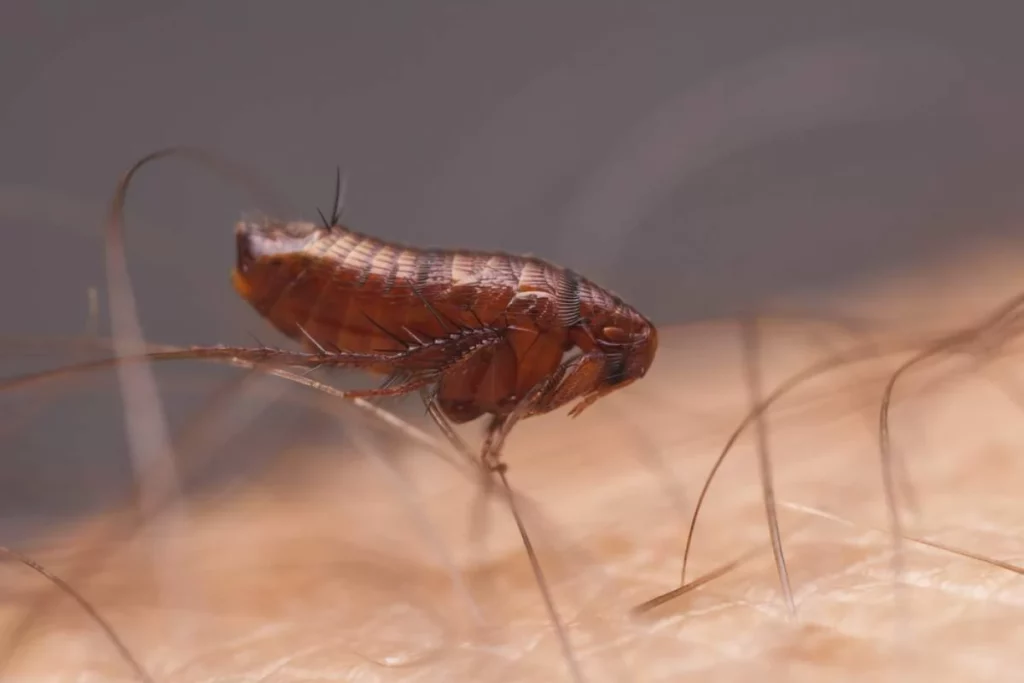
Fleas are small, wingless insects that feed on the blood of their host, usually a mammal or bird. As parasites, they can cause irritation, itching, and discomfort for their host. To combat these pests, many people search for natural remedies, including the use of salt.
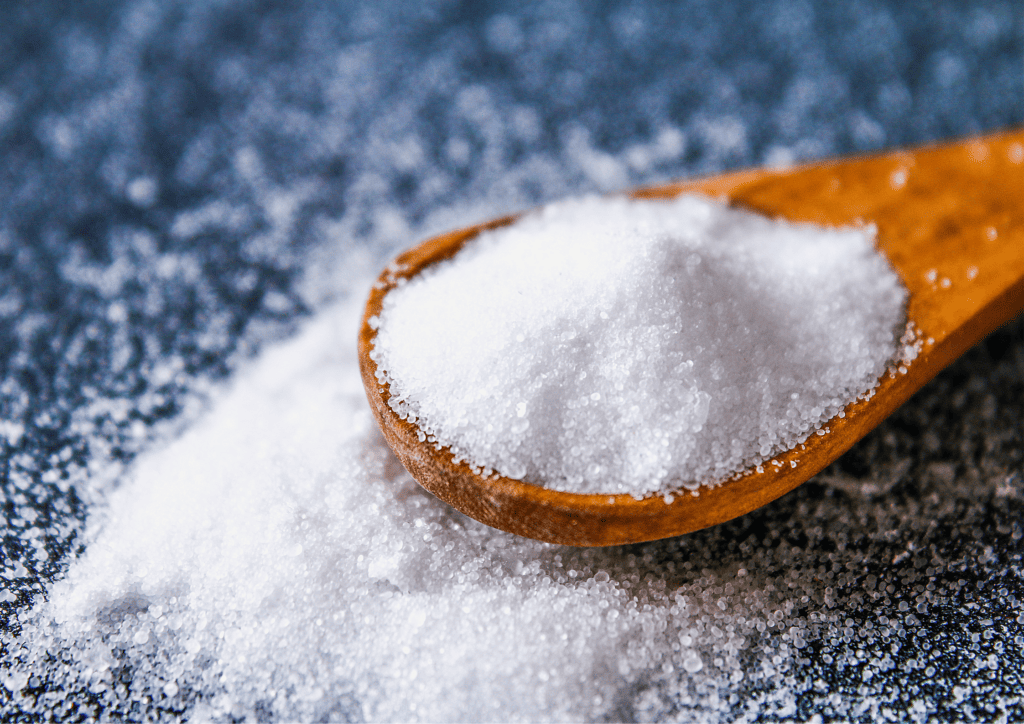
Salt, a common household item, is composed primarily of sodium chloride. It’s widely believed that, in certain circumstances, sodium chloride can have a dehydrating effect on various organisms, including fleas. This has led to the assumption that salt can effectively kill fleas or help control infestations.
Does salt have the capacity to kill fleas?
Salt may not be the most immediate flea control agent that comes to mind; however, some evidence suggests that it may have the potential to eliminate or disrupt flea populations. To determine if salt can kill fleas, let us delve deeper into the science behind the relationship between salt and these pesky insects.
The Science Behind Salt and Fleas
Understanding the scientific rationale behind using salt to combat flea infestations can offer clarity on its potential effectiveness and limitations. Below is a table that outlines how salt impacts different stages of the flea’s life cycle, providing a clearer picture of its potential as a flea control method.
| Life Cycle Stage | Effectiveness of Salt | Notes |
|---|---|---|
| Adults | Effective | Salt can dehydrate adults by absorbing moisture from their bodies, leading to death. |
| Eggs | Ineffective/Unknown | The impact of salt on flea eggs is debated, with some sources claiming effectiveness while others see it as insufficient. |
| Larvae | Ineffective/Unknown | Similar to eggs, the effectiveness of salt on larvae remains unclear due to varying claims. |
| Pupae | Ineffective | There is no evidence to suggest that salt has any impact on the pupae stage of fleas. |
How does salt kill fleas?
If salt is effective in killing fleas, it does so due to its ability to absorb moisture from its surroundings. When fleas come into contact with salt, it’s believed that the salt grains can penetrate the exoskeleton of the flea, which then results in the removal of moisture from their bodies. This dehydration ultimately leads to the death of the flea.
What effect does salt have on fleas?
When fleas encounter salt, they may experience difficulty in maintaining their body’s moisture levels. Since they rely on the blood of their host for sustenance, and blood contains water, fleas need a certain level of moisture to survive. By causing dehydration, salt can potentially disrupt the flea’s life cycle and lead to death.
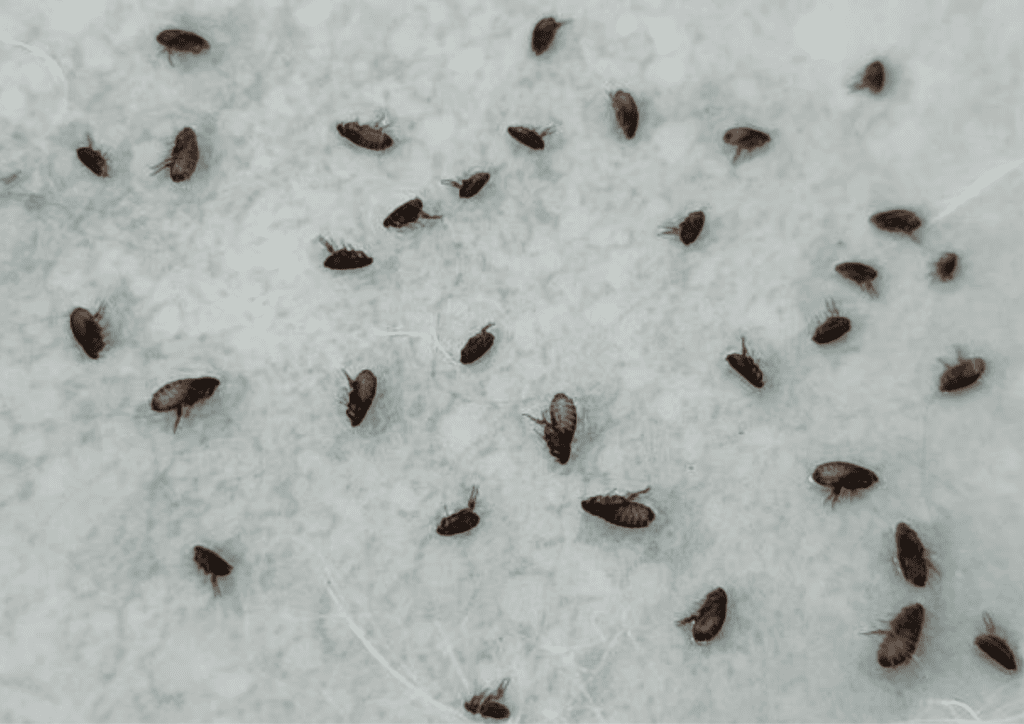
Does salt also kill flea eggs?
The effectiveness of salt on flea eggs remains a topic of debate. While some sources claim that salt does have the ability to dehydrate and kill flea eggs, others argue that the evidence is insufficient to deem salt as a viable solution against entire flea populations, including flea eggs. More research is necessary to provide conclusive evidence on salt’s effectiveness against flea eggs.
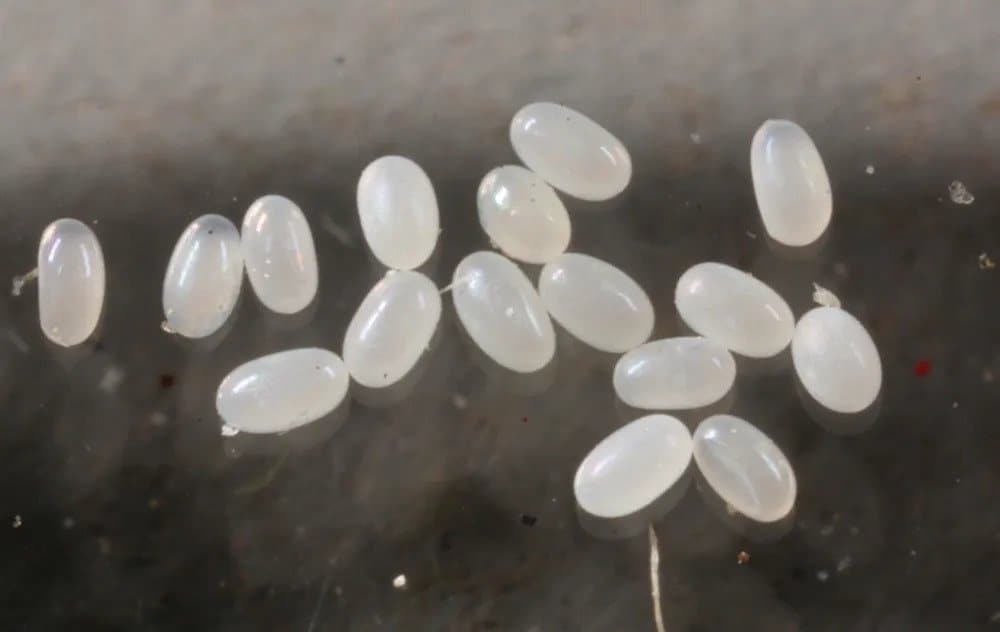
Types of Salt Effective Against Fleas
When using salt as a flea control method, it’s essential to consider the type of salt you’re using. Various types of salt may have different degrees of effectiveness when it comes to killing fleas.
| Type of Salt | Composition | Effectiveness | Additional Notes |
|---|---|---|---|
| Iodized Salt | Sodium chloride + Iodine | Yes/Unknown | Iodine does not enhance effectiveness; effectiveness due to sodium chloride. |
| Table Salt | Sodium chloride | Yes/Unknown | Commonly available; believed to dehydrate fleas. |
| Epsom Salt | Magnesium sulfate | No | Chemically different; no evidence supporting effectiveness against fleas. |
Can iodized salt kill fleas?

Iodized salt is a table salt fortified with iodine, a mineral essential for human health. While iodine itself may not have a substantial impact on fleas, the sodium chloride in iodized salt can potentially cause dehydration and kill fleas. However, the effectiveness of iodized salt against fleas has yet to be scientifically verified, and one must be cautious when making such assertions.
Does table salt kill fleas?

Table salt, which is primarily composed of sodium chloride, may have a similar impact on fleas as iodized salt. The sodium chloride found in table salt can possibly lead to dehydration and the death of fleas. However, like iodized salt, its efficacy as a flea control agent remains largely unverified.
Will epsom salt kill fleas?

Epsom salt, also known as magnesium sulfate, is a common ingredient in various household and beauty products. It is chemically different from other types of salt, and there is no substantial evidence to suggest that epsom salt can kill fleas. Consequently, it’s unlikely to be an effective flea control solution.
What kind of salt is most effective in killing fleas?
As we’ve explored different types of salt, it’s evident that sodium chloride seems to be the primary agent responsible for possibly causing flea dehydration and death. With that said, both table salt and iodized salt, which contain sodium chloride, may be more effective in killing fleas in comparison to epsom salt. However, it’s essential to remember that the scientific evidence to support salt as a reliable and consistent flea-killing agent is limited.
The Use of Salt in Various Settings and Flea Infestations
Salt as a flea-killing agent may have varying levels of effectiveness depending on the circumstances and environments it’s used in. Let’s explore if salt can be effective against fleas in different settings, such as carpets, furniture, and yards.
| Setting | Effectiveness Rating | Reasons/Notes |
|---|---|---|
| Carpets | Medium | Salt can dehydrate fleas but may not reach deep-seated eggs and larvae; risk of carpet damage. |
| Furniture | Low | Difficult to apply evenly; risk of fabric damage and ineffectiveness due to poor contact with fleas. |
| Yards | Not Recommended | Large quantities needed; potential harm to plants and soil; effectiveness diminished by weather. |
| Hardwood Floors | Medium | Fewer hiding spots for fleas; excessive salt can damage floor finishes. |
How effective is salt for killing fleas in the carpet?
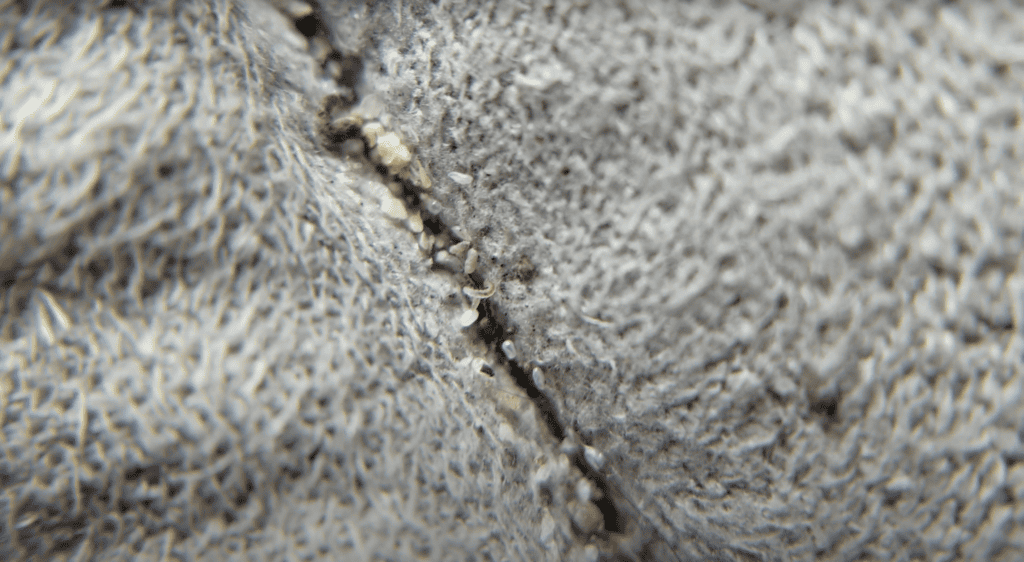
Salt may be somewhat effective in treating fleas hiding in carpets. To try this method:
- Sprinkle table salt evenly over the carpet, allowing the grains to settle into the fibers.
- Leave the salt on the carpet for a period of time, typically 24 to 48 hours.
- Vacuum up the salt after the specified period.
This method aims to exploit the potential dehydrating effects of salt on fleas. However, it’s important to note that using salt on the carpet may only have limited success, as it’s challenging to reach all fleas and their eggs in the deep fibers of the carpet. Additionally, there’s a risk that excessive salt may damage certain types of carpeting.
Can salt kill fleas on furniture?

Using salt on furniture to kill fleas can be a bit problematic. For starters, it’s difficult to spread salt evenly across upholstered furniture. Moreover, there’s the risk of staining or damaging delicate fabrics. Unfortunately, the effectiveness of salt in killing fleas on furniture remains largely unproven, and other solutions may be more reliable.
Does salt kill fleas outside, such as in yards?

Salt is not recommended as an effective treatment for outdoor flea infestations. Not only would you need a substantial amount of salt to cover the entire yard, but using salt in this manner may cause damage to plants, soil, and other living organisms. Additionally, rain and other weather conditions would dissipate the salt, rendering it ineffective. Other outdoor flea control methods should be considered instead.
Is salt effective against fleas on hardwood floors?
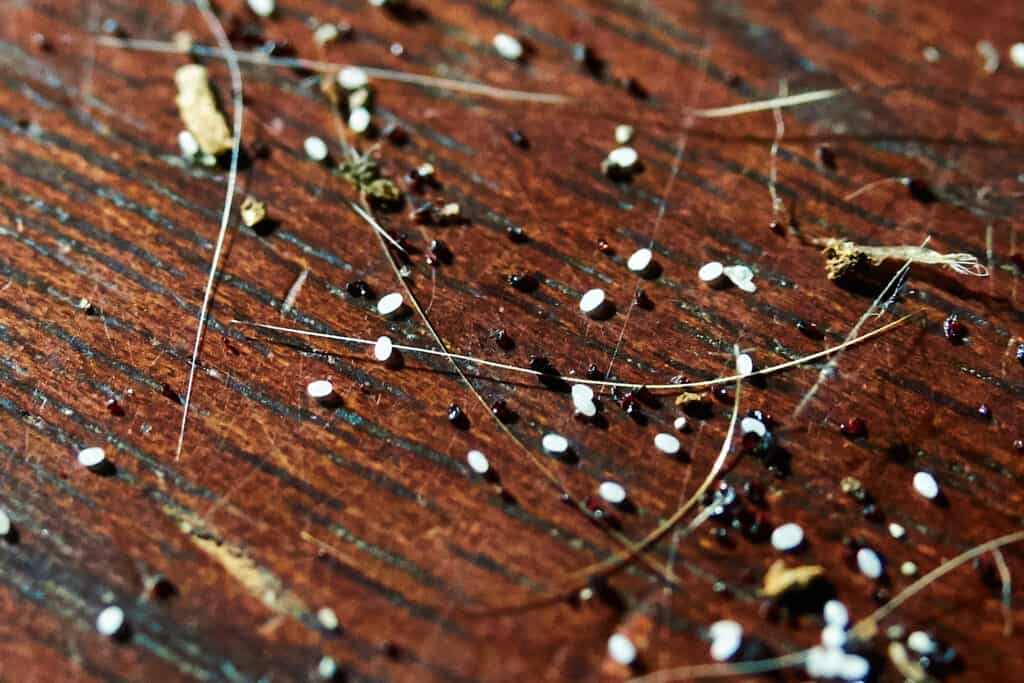
While salt may be slightly more effective on solid surfaces, such as hardwood floors, compared to carpets and upholstery, its overall efficacy remains unclear. As hardwood floors provide fewer hiding spots for fleas, using salt may lead to the dehydration and death of some fleas; however, this method may not address the whole infestation, including flea eggs laid in cracks or crevices. Proceed with caution as using excessive salt may harm some finishes or cause damage to the floor.
Using Salt as a Flea Treatment for Pets
If you’re attempting to use salt as a flea treatment for your pets, it’s crucial to exercise caution. Let’s take a closer look at whether or not salt can be used safely and effectively on pets.
| Treatment Type | Safety | Effectiveness | Notes |
|---|---|---|---|
| Direct Application | Unsafe | Ineffective/Unknown | Salt can cause skin irritation and discomfort; risk of ingestion leading to salt toxicity. |
| Salt Water Bath | Use with Caution | Limited | May dehydrate fleas but unlikely to resolve infestation; concentration must be carefully managed to avoid skin irritation. |
Can I put salt on my dog or cat to kill fleas?
Applying salt directly on your dog or cat is generally not recommended. Salt can cause skin irritation and discomfort in pets, and some pets may be inclined to lick it off, leading to health concerns, such as salt toxicity. Additionally, the effectiveness of salt in killing fleas on pets has not been scientifically verified. It’s best to consult your veterinarian for appropriate and safe flea treatments for your pets.
Does salt water kill fleas on cats and dogs?
Salt water may have some limited impact on fleas found on cats and dogs. A saltwater rinse or bathing your pet in saltwater could cause dehydration in fleas, leading to their death. However, this method alone may not be sufficient to completely address a flea infestation on your pet. If you choose to try a saltwater bath, ensure the concentration of salt is not too high, as it may irritate your pet’s skin. Always consult with a veterinarian before attempting any home remedy.
Can salt baths be used as a treatment for dogs with fleas?

Although salt baths can be soothing for some skin conditions in dogs, using it as flea control treatment is not advisable. As previously mentioned, the effectiveness of salt in eliminating fleas has not been scientifically proven, and there’s the risk of irritation or harm to your dog’s skin. For safe and effective flea treatments, consult your veterinarian.
The Duration and Process of Salt Treatment
How long does it take for salt to kill fleas?
The duration it takes for salt to kill fleas varies depending on the conditions, such as the humidity level and temperature. Generally, it’s believed that salt may take anywhere from 24 to 48 hours to effectively dehydrate fleas. However, this timeframe may change depending on the specific situation and the extent of the flea infestation.
How long should salt be left on the carpet to kill fleas?
If you choose to try using salt on your carpet to kill fleas, it’s advised to leave the salt on the carpet for at least 24 to 48 hours to allow the dehydrating effects to take place. After this period, vacuum the carpet thoroughly to remove the salt and dead fleas, and remember to empty your vacuum cleaner outdoors.
What is the correct way to use salt to kill fleas?

The following steps outline the general process for using salt to treat a flea infestation:
- Choose table salt or iodized salt containing sodium chloride.
- Sprinkle the salt evenly across the targeted surface (carpet or hardwood floor).
- Allow the salt to sit for 24 to 48 hours.
- Vacuum the area thoroughly to remove the salt and dead fleas.
- Empty the vacuum cleaner outdoors to prevent any surviving fleas from escaping.
Please note that the use of salt alone may have limited success in eliminating a flea infestation, and other methods should be considered in conjunction with the salt treatment.
Does salt permanently get rid of fleas?
While salt can potentially help to kill adult fleas by causing dehydration, it’s unlikely to provide a long-term solution for a flea infestation. Salt’s effectiveness against flea eggs remains unclear, and it may not address all stages of the flea life cycle. To permanently get rid of fleas, a comprehensive and multi-faceted approach involving various treatments and preventative measures is advisable.
The Effectiveness of Salt Compared to Other Methods
Comparing the effectiveness of salt against fleas with other flea control methods provides a broader perspective on its utility and efficiency. Below is a table that contrasts salt’s efficacy with manual removal techniques and homemade remedies, offering insights into each method’s advantages and disadvantages.
| Method | Effectiveness | Pros | Cons |
|---|---|---|---|
| Salt | Medium | Inexpensive, accessible | Inconsistent results, potential damage to environments and pets |
| Manual Removal | High | Immediate relief, no chemicals involved | Labor-intensive, does not address eggs and larvae |
| DIY Flea Sprays | Medium-High | Targeted application, natural options available | Effectiveness varies by ingredients, potential pet sensitivity |
| Baby Powder | Low-Medium | Easy to apply, mild drying effect on fleas | Limited effectiveness, messy application |
How does the effectiveness of salt compare to killing fleas manually, such as with fingers or flea combs?

Salt may provide some assistance in killing fleas, but its effectiveness in comparison to manual methods like using fingers or flea combs is uncertain. Manual methods can effectively remove adult fleas from pets in real-time, reducing the flea population and providing immediate relief to the animal. However, manual removal does not address flea eggs and larvae. Like salt, these manual methods should be combined with other treatment options for a comprehensive approach to flea control.
How does salt compare to homemade remedies, such as DIY flea sprays or baby powder?

While salt, like other DIY remedies, has some potential as a flea control solution, its definitive effectiveness is still in question. Homemade flea sprays that use natural ingredients like essential oils, vinegar, or dish soap might be more effective in addressing a wider range of flea life stages. Baby powder (talcum or cornstarch-based) can also have a drying effect on fleas and may be easier to use on carpets and upholstery. However, always use caution when applying any DIY solution to pets and consult your veterinarian for advice on safe and effective flea treatments.
Is salt a natural solution for getting rid of ticks as well?
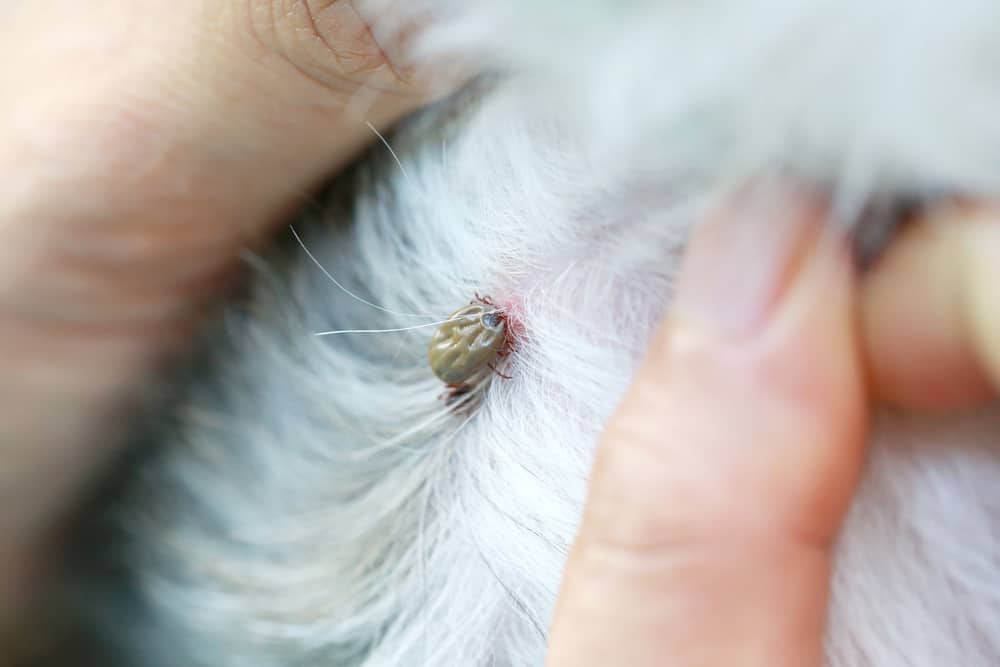
Salt may have some drying effects on ticks, much like its potential effects on fleas. However, relying on salt as a primary tick control method is not recommended, as its effectiveness against ticks has yet to be scientifically proven. When dealing with ticks on pets or in the home, it’s best to use approved tick control treatments and consult with a veterinarian for guidance.
Conclusion: Is Salt a Reliable Solution to Fleas?
While salt has been touted as a potential flea control solution, its overall efficacy remains up for debate. There is some evidence suggesting that salt, or specifically sodium chloride, can dehydrate and kill fleas in certain circumstances. However, this method may not be comprehensive or consistently effective in treating flea infestations in various settings or on pets.
Does salt really kill fleas?
Salt may kill some fleas by causing dehydration, but its consistency and reliability as a flea control agent are not definitively proven. Depending on the circumstance, type of salt, and application method, the success of this method may vary.
What precautions should be taken when using salt for fleas?
While salt can be an accessible method for tackling flea infestations, it’s crucial to approach its use with caution to avoid unintended consequences. The following table outlines key precautions to consider when employing salt against fleas, ensuring safety and effectiveness.
| Precaution | Reason/Impact | Suggested Action |
|---|---|---|
| Avoid using salt directly on pets | Can cause irritation, discomfort, and toxicity | Use pet-safe flea treatments recommended by veterinarians |
| Be cautious on carpets and furniture | Salt can damage some materials and may not reach all fleas or their eggs | Test on a small area first; consider alternative treatments |
| Consider the environmental impact | Using large amounts outdoors can harm plants and soil | Avoid using salt as an outdoor flea control method |
| Monitor for residue and damage | Salt can leave residues and potentially harm flooring or fabrics | Vacuum thoroughly after treatment; assess areas for damage |
What are the potential implications and considerations when using salt as a flea control method?
While salt may be an affordable and accessible solution to try, it’s important to understand the potential limitations and risks associated with using salt for flea control:
- The effectiveness of salt in killing fleas and addressing eggs or larvae is unproven.
- Salt may cause irritation or damage to pets, carpets, furniture, or flooring.
- Salt is not recommended as an effective treatment for outdoor flea infestations or tick control.
In conclusion, if you’re struggling with a flea infestation, it’s essential to consider a comprehensive and multi-faceted approach to address all stages of the flea life cycle effectively. While salt may have some impact on fleas, it’s best to combine any salt treatments with veterinarian-approved solutions and ongoing flea prevention measures to ensure lasting results.

